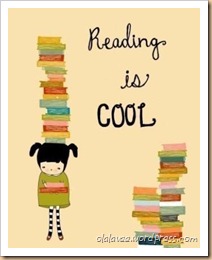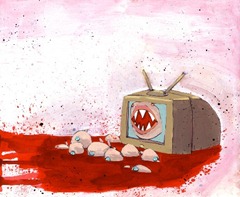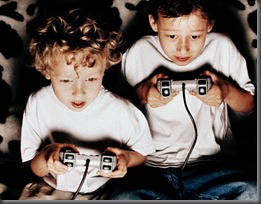Jonathan Livingston Seagull is a novel written by Richard Bach, an American writer and pilot who has written many novels; Jonathan Livingston Seagull (1970), A Gift of Wings (1974), Illusions: The Adventures of a Reluctant Messiah (1977). Most of his novels tell about flying. It is because he loves flying since he was seventeen.
This novel tells about a bird named Jonathan who feels bored with his daily life. He wants to find something new and more meaningful things in his life. Even if he faces many obstacles in achieving his dream, he still walks on his way.
Seagull itself is a symbol in this novel. Besides seagull, there are many other symbols used in this novel. Seagulls, eating, flying, and heaven are the significant symbols in the novel.
This novel uses animal, seagull, as its main character. We will see it as a fable at a glance. But there is something deeper inside the novel. Seagull is a symbol which represents the human being.
By using seagull, Bach relates it with human being; how people deal with their life. Sometime people are faced to a dilemmatic problem; whether to follow their conscience or society opinion. Some people may succeed and some are not.
Those who succeed in dealing with their problems will transform into a higher level person. And those who fail in dealing with their problems will be dragged into a zone which is called “comfort zone”, just be ordinary; become a part of the society. It doesn’t mean that become a part of the society is bad. It’s just that they too enjoying the “comfort zone”. They will stay in that position in order to save their position in the society.
That phenomenon is related to “eating” in the novel by Bach. Ordinary seagulls learn to fly to get food and not more as Bach mentioned in his novel, Jonathan Livingston Seagull.
Most gulls don’t bother to learn more than the simplest facts of flight―how to get from shore to food and back again. For most gulls, it is not flying that matters, but eating (p. 14, part 1).
So when they see Jonathan practicing to fly higher, the Flock considers it as betrayal. They see Jonathan is different from the other. Jonathan is not ordinary.
“…for his reckless irresponsibility,” the solemn voice intoned, “violating the dignity and tradition of the Gull Family…” (p. 34, part 1).
Jonathan is a gull which tries to escape from the ordinary. He wants to fly higher―not like other seagulls―and that’s his target; his perfection. Therefore, he has to face the consequences of being different. He has to leave the Flock, practice hard, and be alone. This relates to human being. When people have decided to make a commitment in their life, they have to take all the consequences following whether they like it or not.
Successfully reaching his target―to fly higher―Jonathan finally reaches heaven where he transforms to be a more mature gull. Besides, he also becomes more religious. In there, he (Jonathan) realizes that perfection is only one more step towards our true nature which is in the image of the Great Gull (God).
Here, we can see that we can find heaven anywhere as we had reached our perfection, understood ourselves, and also understood others. It’s like what Chiang said to Jonathan when first time he reaches heaven, “Remember, Jonathan, heaven isn’t a place or a time, because place and time are so very meaningless” (Jonathan Livingston Seagull, p. 58, part 2). He also said:
“You will begin to touch heaven, Jonathan, in the moment that you touch perfect speed. And that isn’t flying thousand miles an hour, or a million, or flying at the speed of light. Because any number is a limit, and perfection doesn’t have limits. Perfect speed, my son, is being there.” (Jonathan Livingston Seagull, p. 55, part 2)
It is obvious, then, that we can have heaven in our life, our family, or in our job. It is just about how we maintain our problem and see the limitations as a challenge. Use our knowledge and be confident, then we can find the way as Jonathan said to Fletcher.
“Poor Fletch. Don’t believe what your eyes are telling you. All they show is limitation. Look with your understanding, find out what you already know, and you’ll see the way to fly” (p. 92, part 3).
What about the society? Well, it is a complicated one. If we relate to the novel, society (the Flock) didn’t support Jonathan at all. They sent Jonathan out of the Flock, let him live alone, and consider him as a freak. Nothing’s good did by the society.
However, we cannot be such an egoistic person. Even if the society did something wrong to us, we have to share our knowledge to them, teach them to be better people. It is just like what Chiang said to Jonathan that he had to learn about love. It’s hard to do, but he had to. Jonathan, then, taught that to Fletcher.
“Oh, Fletch, you don’t love that! You don’t love hatred and evil, of course. You have to practice and see the real gull, the good in every one of them, and to help them see it in themselves. That’s what I mean by love. It’s fun, when you get the knack of it” (p. 91, part 3).
From the novel we learn that our (people) biggest obstacle is ourselves; our thought. If we keep thinking that we are ordinary, then we will become ordinary for the rest of our life. But if we always think that we can be extraordinary, so we are. It is all about choice, then, whether or not to be extraordinary.
References:
Bach, Richard. (1972). Jonathan Livingston Seagull. Great Britain: Turnstone Press Ltd.
Hackworth, Allen. Jonathan Livingston Seagull. Allenhackworth.com. Retrieved October 14, 2010, from http://allenhackworth.com/prose/jonathan.htm
Jonathan Livingston Seagull. Wikipedia. Retrieved October 14, 2010, from http://en.wikipedia.org/wiki/Jonathan_Livingston_Seagull
Richard Bach. Wikipedia. Retrieved October 14, 2010, from http://en.wikipedia.org/wiki/Richard_Bach







